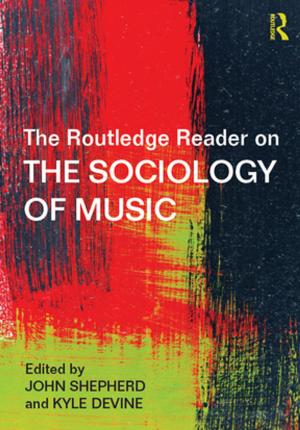Understanding and Managing Children's Behaviour through Group Work Ages 5-7
A child-centred programme
Nonfiction, Reference & Language, Education & Teaching, Elementary, Special Education| Author: | Cath Hunter | ISBN: | 9781317580782 |
| Publisher: | Taylor and Francis | Publication: | November 20, 2014 |
| Imprint: | Routledge | Language: | English |
| Author: | Cath Hunter |
| ISBN: | 9781317580782 |
| Publisher: | Taylor and Francis |
| Publication: | November 20, 2014 |
| Imprint: | Routledge |
| Language: | English |
Understanding and Managing Children’s Behaviour 5-7 provides the reader with an insight into children’s emotional well-being and helps them to understand what and how children communicate and how to respond in a way that provides positive messages, increases their emotional vocabulary and encourages them to change their behaviour. It provides an alternative and effective child-centred way of managing children’s behaviour through introducing the concept of reflective language and other tools, equipping staff with new skills that are transferable across the school in any role.
The book is divided into two sections, enabling the reader to link theory with practice. The first section takes the reader on a journey to help them understand the different factors that influence children’s behaviour. The second section of the book focuses on the group work programmes, how they can be used, their value and the impact they can have on children and the school as a whole. The activities in the group work programmes explore the concept of using reflective language as a behaviour management tool and are designed to motivate and build confidence, self-esteem and resilience. Useful pedagogical features throughout the book include:
-
practitioner and classroom management tips and reflective tasks;
strategies and practical ideas for staff to use to help them engage more deeply with the contents of the book;
flexible, tried and tested group work programmes designed to promote inclusion rather than exclusion;
clear step-by-step instructions for delivering the group work programmes;
case studies showing behaviour examples with detailed explanations for the behaviour and strategies to respond to it.
This book is aimed at all KS1 primary school staff, especially teaching assistants, learning mentors and family workers who can deliver the group work programmes. It is also recommended reading for SENCOs and trainee teachers, and will be useful for therapists who work with children and are looking at delivering other approaches in their work.
Understanding and Managing Children’s Behaviour 5-7 provides the reader with an insight into children’s emotional well-being and helps them to understand what and how children communicate and how to respond in a way that provides positive messages, increases their emotional vocabulary and encourages them to change their behaviour. It provides an alternative and effective child-centred way of managing children’s behaviour through introducing the concept of reflective language and other tools, equipping staff with new skills that are transferable across the school in any role.
The book is divided into two sections, enabling the reader to link theory with practice. The first section takes the reader on a journey to help them understand the different factors that influence children’s behaviour. The second section of the book focuses on the group work programmes, how they can be used, their value and the impact they can have on children and the school as a whole. The activities in the group work programmes explore the concept of using reflective language as a behaviour management tool and are designed to motivate and build confidence, self-esteem and resilience. Useful pedagogical features throughout the book include:
-
practitioner and classroom management tips and reflective tasks;
strategies and practical ideas for staff to use to help them engage more deeply with the contents of the book;
flexible, tried and tested group work programmes designed to promote inclusion rather than exclusion;
clear step-by-step instructions for delivering the group work programmes;
case studies showing behaviour examples with detailed explanations for the behaviour and strategies to respond to it.
This book is aimed at all KS1 primary school staff, especially teaching assistants, learning mentors and family workers who can deliver the group work programmes. It is also recommended reading for SENCOs and trainee teachers, and will be useful for therapists who work with children and are looking at delivering other approaches in their work.















